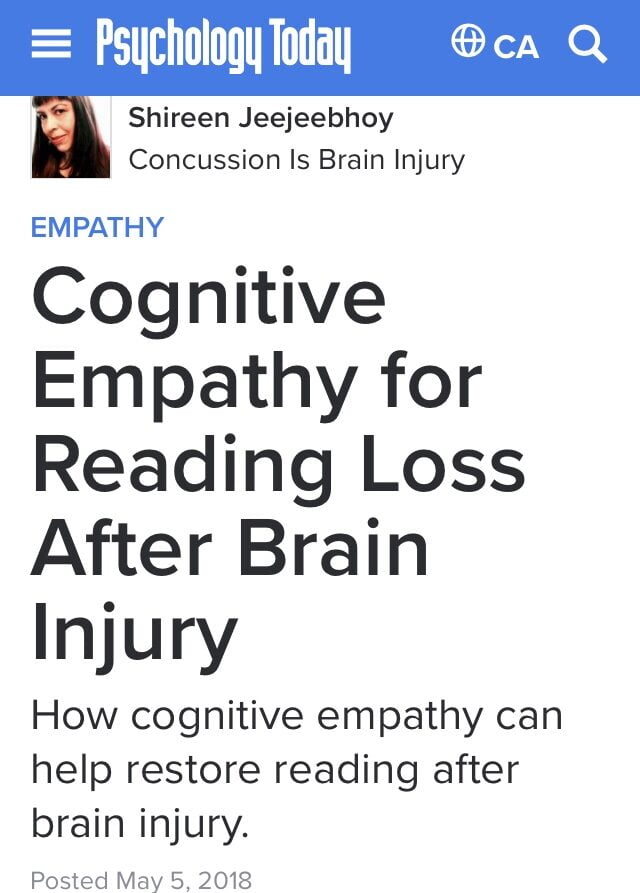Psychology Today - Reading and Brain Injury
- Reading Loss: The Genesis of Grief, The Seed of PTSD
- Cognitive Empathy For Reading Loss After Brain Injury
- What Makes Reading Enjoyable?
Cognitive empathy lets you imagine a client’s experience, puts yourself in their shoes, and act accordingly. How you can use it to help restore reading post concussion.
Dr. Brian Goldman, a Toronto ER doctor and host of White Coat Black Art on CBC Radio, was on CBC Radio’s Ontario Today at noon, Friday, May 4, talking about his newest book on kindness. I had to listen. He defined cognitive empathy as the ability to imagine a patient’s experience, to put yourself in their shoes and act accordingly.
In my quest to receive help for restoring my reading, I’ve met psychologists and psychiatrists who’ve thought about it, who’ve listened, who’ve helped for a little while, and/or who’ve talked about how they don’t read novels anymore and would love to have the time to do that — as if I, as a writer, want to read only as a form of leisure, as if they, as professionals with value, don’t have the time so why should I worry about my reading?
And as if restoring reading for pleasure is not something worth their time.



